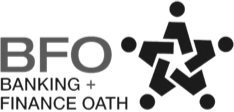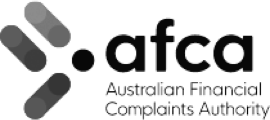The second wave of coronavirus lockdowns in Victoria has caused a delay in our national economic recovery, but there is hope over the horizon.
Even though the lockdown is in only one state, it has meant a large chunk of the national recovery timelines have been pushed back 3-6 months. This is largely because:
- The Victorian economy makes up 20% of the national activity and 21% of total employment.
- Spending in Victoria was 22 per cent below normal levels. In the week of August 17-23, the lowest since early May.
- Consumer and business confidence nationally has been dented by the efforts to control the resurgence in Victoria. Spending overall was down 5 per cent on normal levels.
- State borders remain closed. 75% of tourism spend is Australians spending in Australia. If people do not have the freedom to move around, they aren't spending.

Andrew Charlton, economist and director of research firm AlphaBeta said “It’s clear that the Victoria lockdown is having a psychological spending impact across Australia,” he said. "The impacts are being seen as far as WA – which shows that even with border closures, you can’t keep out the economic impacts of COVID-19. Confidence will only get back on track once there are clear measures in place – across all governments – about how we manage to live and work with the threat of COVID."
Demand drivers are missing
Predictions are that in 2021 the average unemployment rate could be as high as 8.8%. This means consumer borrowing ability and wage growth will be low.
Population growth that helps drive consumption and investment will also be well down - possibly half the normal rate of growth. This is due to
- A large drop in immigration
- The COVID-baby-boom not materialising. People are not having babies due to concern around employment. They’re focused on saving rather than consuming
These demand-driven factors will hurt business investment and growth.
There are some industries who have already been hit very hard and won’t see revenues return to anything like pre-COVID levels for a while. If businesses in these industries have large debt we can expect two things:
- Bad debts will increase.
- Investment for future growth will be slow due to point 1, and businesses focusing on paying off their debts.

Now for the good news
Australia is better off than most economies globally, having sustained the least impact on GDP among the group below.

The Government has produced some well targeted stimulus to date and there is still enough in the coffers to spend. Compared to many others around the globe our gross debt to GDP is relatively healthy at well below 50%.
With record lows the cash rate can’t go down, therefore there is pressure on fiscal stimulus. The Government will probably respond and adjust their stimulus packages.

As restrictions start to ease, businesses will re-open. From our long experience of business owners we know they are innovative, positive people and good leaders. There is evidence of this in all States across Australia (Victoria will pick up later) where confidence is returning.
Lending will be the cornerstone for investment and growth. Each business loan application will be looked at based on their unique circumstances. Lending for growth will now require a forward projection assessment instead of purely relying on historical performance. This in turn requires the lender to be able to access business’s financial data and forecast positions. On this basis, traditional lenders will struggle to approve loans or change their model. Alternate lenders like Banjo are key to helping drive the economy back.


